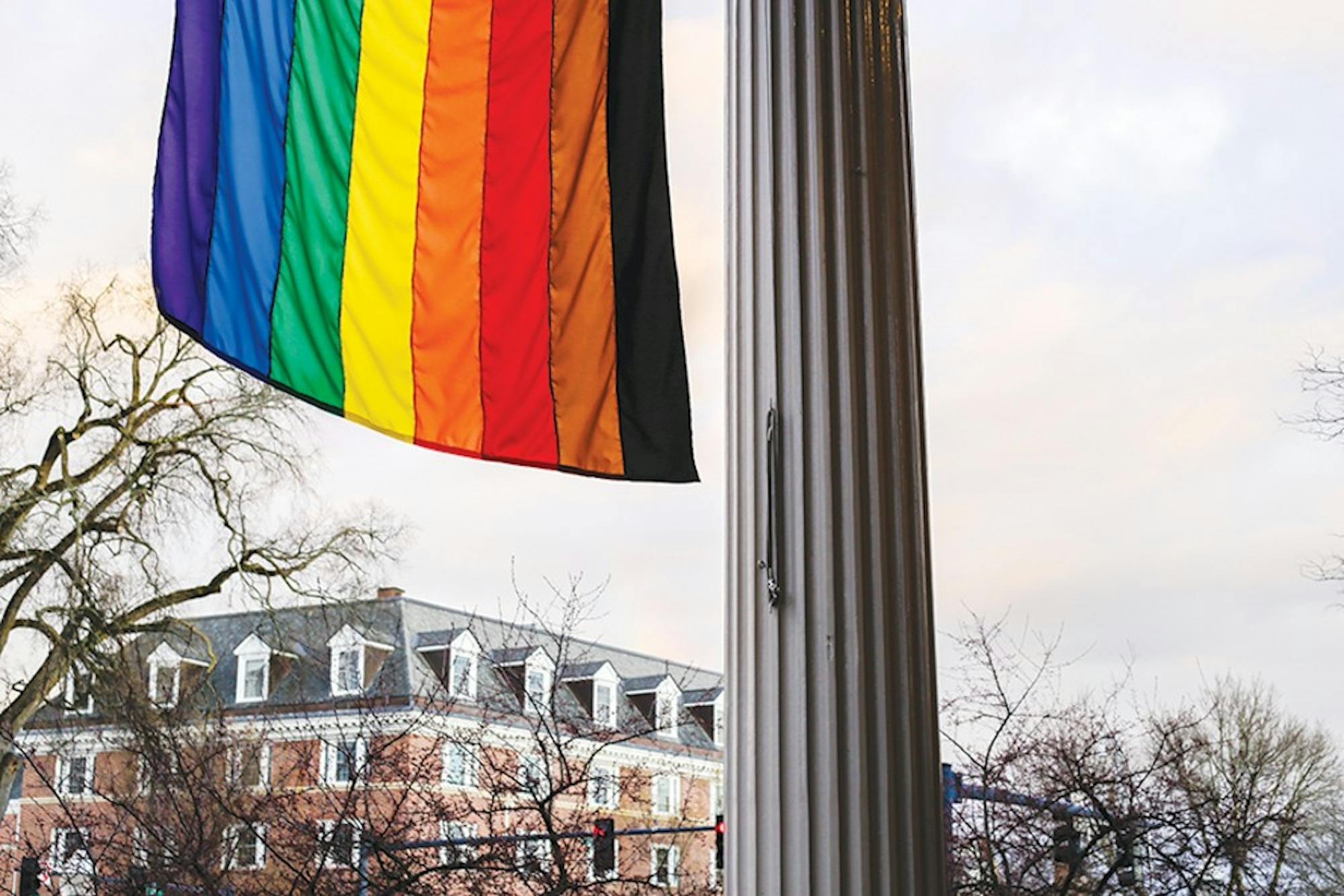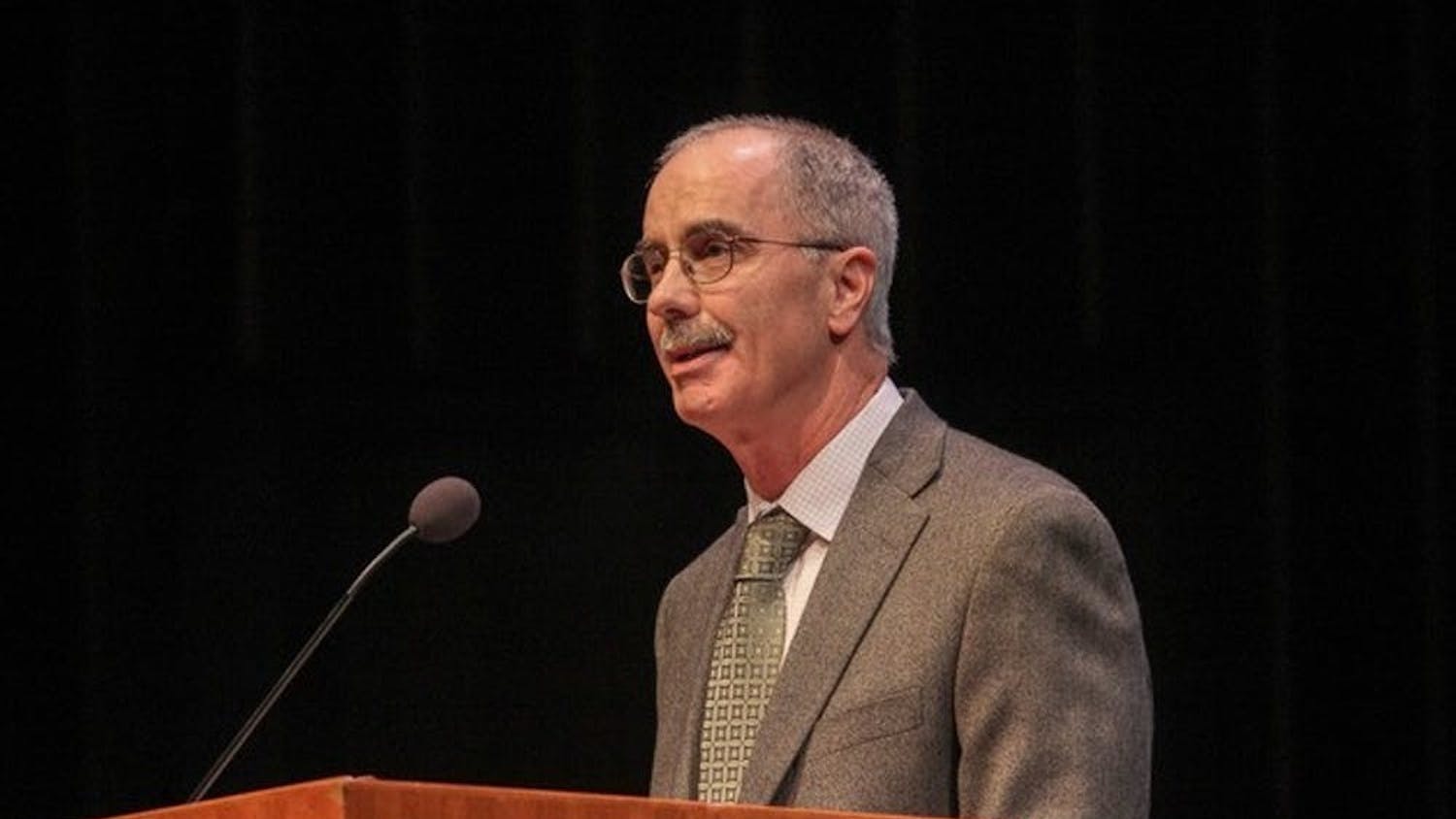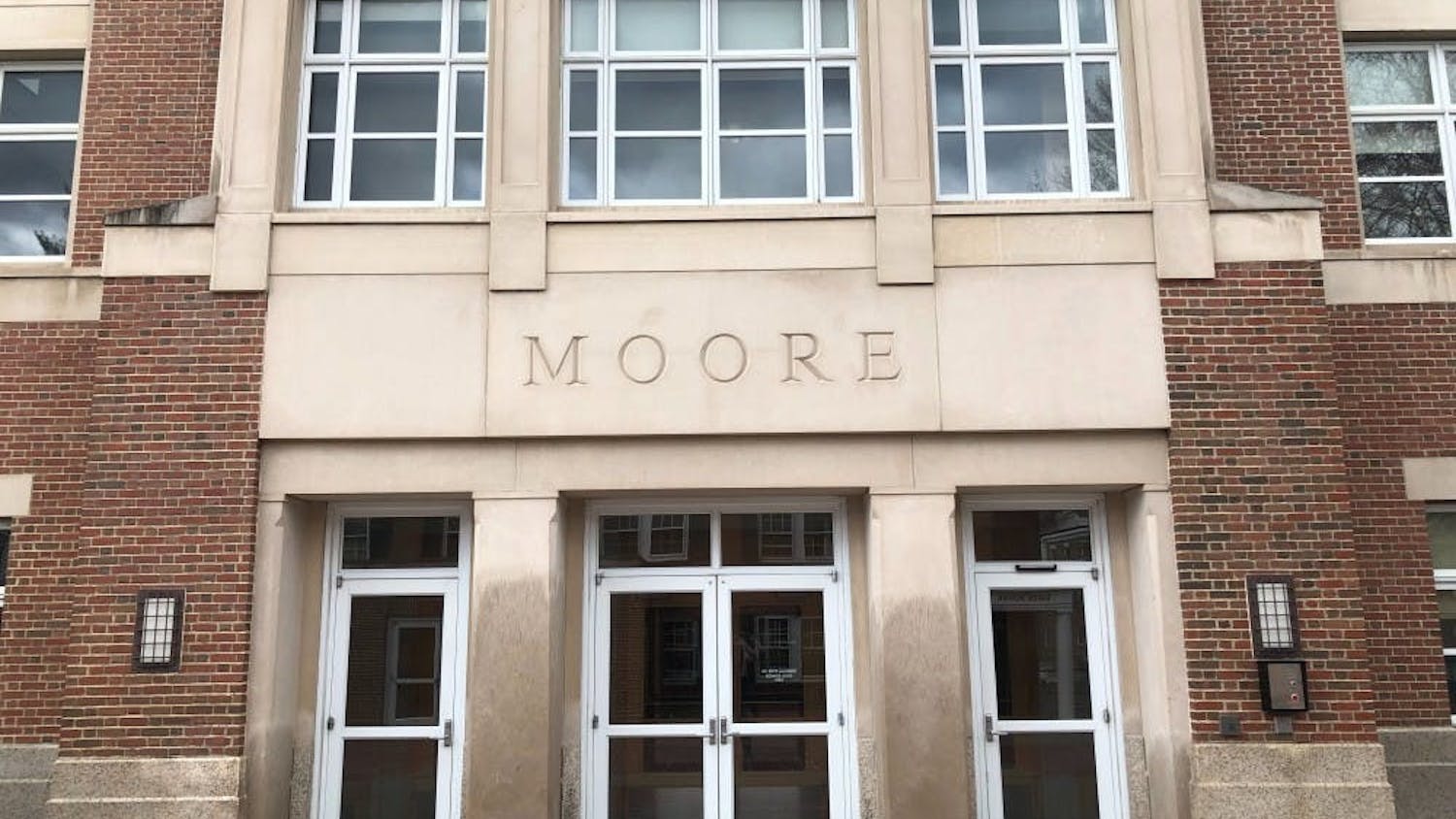This article is featured in the 2020 Commencement special issue.
The completion of a Dartmouth education means many things: celebration, new opportunities and hopefully the joyful acknowledgement of four transformative years. As Commencement rolls around, our natural inclination is to reflect on how Dartmouth changed us. However, I find it equally valuable to examine the ways in which we changed Dartmouth.
One of the areas where Dartmouth has both needed and seen the most student-led change is in its queer community.
This process isn’t something that started recently. As Val Werner ’20 studied in his historical research fellowship at Rauner Special Collections Library, Dartmouth’s complicated, sometimes antagonistic dialogue with LGBTQ students stretches back to the 1970s. However, while Werner found numerous documents from the 1970s and 1980s, records of Dartmouth’s more recent queer history have been harder to track down. Werner believes that this stems from the sentiment that gay student organizations were viewed as a “big deal” in the more distant past and thus were reported on more frequently.
In 2015, Brendan Connell Jr. ’87 was serving as president of DGALA, Dartmouth’s LGBTQ alumni association. At this time, Connell Jr. founded an oral history project focused on collecting and preserving the stories of LGBTQ Dartmouth students. This initiative was created to close the knowledge gap between current Dartmouth students and their queer predecessors’ untold stories. It has grown into what is now known as SpeakOut, an online database that documents the history of the LGBTQ community at Dartmouth.
When I first set out to write an article about changes in Dartmouth’s LGBTQ community over the past few years, I didn’t know that I would stumble upon this treasure trove of recorded conversations. Although — as Werner observed — there is little written evidence of recently organized LGBTQ communities at Dartmouth, people have started telling these stories themselves. The conversations collected are pieces of this narrative: From students both past and present, we hear a complicated, ambivalent yet ultimately hopeful story of what it means to be queer at Dartmouth.
Institutionally, Dartmouth has often fallen short, but it is not necessarily from a lack of effort. As Leandra Barrett ’15 noted in her 2018 SpeakOut interview, some of the tension in Dartmouth’s relationship with queer students goes all the way back to its founding in 1769. Barrett emphasized that Dartmouth’s traditions were not built for LGBTQ students.
“A certain [subject] was presumed when the university was constructed. And that was not a queer Chicana girl from south Texas. It was not Native students. It was not black students. It was not queer students. It was not women.” Barrett said. “They can add it to the [Alma Mater], but it’s still incomplete.”
Dartmouth’s institutional inattention has practical consequences: For Werner, it meant there was no organized LGBTQ community when he needed one most.
“Even though I’m graduating in 2021, I first got to Dartmouth in 2016. That was a weird time for me because it’s when I was first trying to figure out my identity — and I show up and there’s really no support,” Werner said.
However, as with adding women to the Alma Mater, Dartmouth has made belated progress on the LGBTQ front.
“I left for a year, and when I came back Spectra [an LGBTQ group] was in place. Coming back to campus and there being an organization was a really big deal,” Werner said. “It did seem like in the year I was gone, Dartmouth grew up a lot.”
Werner wasn’t alone in having a somewhat isolating first year. Anne Pinkney ’20, who is a member of Panarchy, former chair of the Student and Presidential Committee on Sexual Assault and SpeakOut interviewer, shared some of her experiences.
“I think that it’s hard to find queer spaces your freshman year,” Pinkney said. “There was definitely a moment where something flipped and I was like ‘Oh, there [are] all these people who share this identity.’”
Pinkney added that listening to other queer students discuss the importance of SpeakOut was a meaningful experience.
“I remember on the first day [of SpeakOut training] we all went around and said why we were interested in the oral history initiative. I kinda came up with something because I wasn’t out at the moment, but there were other people in the room who shared from their personal experiences, and that was a formative experience for me,” she said.
My own freshman fall was a wild ride of questioning my sexuality and trying to make peace with it — all while unaware of organized communities for LGBTQ students. It was only when I started writing articles like these that I discovered Dartmouth’s queer spaces.
As both Werner and Pinkney noted, these queer spaces are incredibly helpful for LGBTQ students, providing both an accepting community and a group of students willing to advocate for one another. For Pinkney, older students in Panarchy — which has been long recognized as a LGBTQ and gender-inclusive social space — set an example of what it meant to be queer and proud.
“There are many queer women [in Panarchy] who took me in and showed me that it’s OK to be queer and engage in your identity,” Pinkney said.
As a transgender man, Werner has found Dartmouth’s LGBTQ community especially helpful for advocacy. There are many obstacles Dartmouth has yet to address for its trangender students, but according to Werner, the root of the problem comes down to a lack of awareness.
“My freshman year, it was a new thing for [undergraduate advisors] to ask people’s pronouns at floor meetings. In general, the bigger culture was starting to become aware of trans people and trans issues,” Werner said. “I think that still, in general, Dartmouth is still not super accepting of trans people because they don’t understand it and they don’t try [to] … [Being trans at Dartmouth] is like living in a different world than everybody else. But a lot more people know more things than they used to.”
Dartmouth’s newest student-led LGBTQ organization, Within, has pushed for more recognition of transgender and gender non-conforming students from the Office of the Registrar. Some progress has been made, but as with much of Dartmouth’s relationship to the queer community, the results have been mixed.
“The options that we have for gender [on school forms] are better now, but they’re still not good. However, [Dartmouth’s queer community] can see that a lot of effort went into it, and we’re very appreciative of this,” Werner said.
A recent survey created by Within aimed to collect feedback from the Dartmouth community about Darthub’s student profile customization options, which were revised in September to allow students to indicate their preferred name, pronouns and gender identity. Within compiled the 75 responses into a list of recommendations, although Werner noted that the list does not reflect the opinions of everyone in the organization. One recommendation is to remove the word “chosen” from the selections of names, pronouns and gender identity, as some contend that language incorrectly suggests that aspects of one’s identity are a choice. Another recommendation is to add genderfluid as an option for one’s gender identity.
Evidently, Dartmouth’s relationship with the LGBTQ community still has room for improvement. Campus culture is still overwhelmingly straight and cisgender, and the LGBTQ students who are out are expected to present a normative expression of queerness.
As Pinkney pointed out, “[Dartmouth] is a very straight campus — most people know who is straight and who is not.” Those who aren’t straight are expected to look and act the part, but in reality, there’s no one way to be queer.
However, students past and present are actively working to change this. One of the key components of change is casting a vision for the future, and in her SpeakOut interview, Barrett did exactly that.
“I really hope someone does that imaginative work of establishing a new infrastructure that will eventually become our tradition and fundamentally reorient the way that [Dartmouth] thinks,” Barrett said. “Dartmouth should incorporate women, people of color, queer people into their tradition, but someone somewhere needs to do the hard work of how to rewire that place.”
Institutional change is difficult and slow, and for all the progress that has been made, there’s still a ways to go.
To the Class of 2020 and all those who have come before: Thank you for starting the process. Now it’s our turn to be the change.
Correction appended (June 14, 2020): A previous version of this article mispelled Brendan Connell Jr. ’87's name. The article has been updated to reflect the correct spelling.
Caris is a '23 from Long Beach, CA and is majoring in religion modified with art history. When not editing stories for the Mirror, you can find her playing club soccer, snowboarding at the Skiway or sipping coffee in Sherman Art Library. After college, she plans on attending graduate school in religion.




